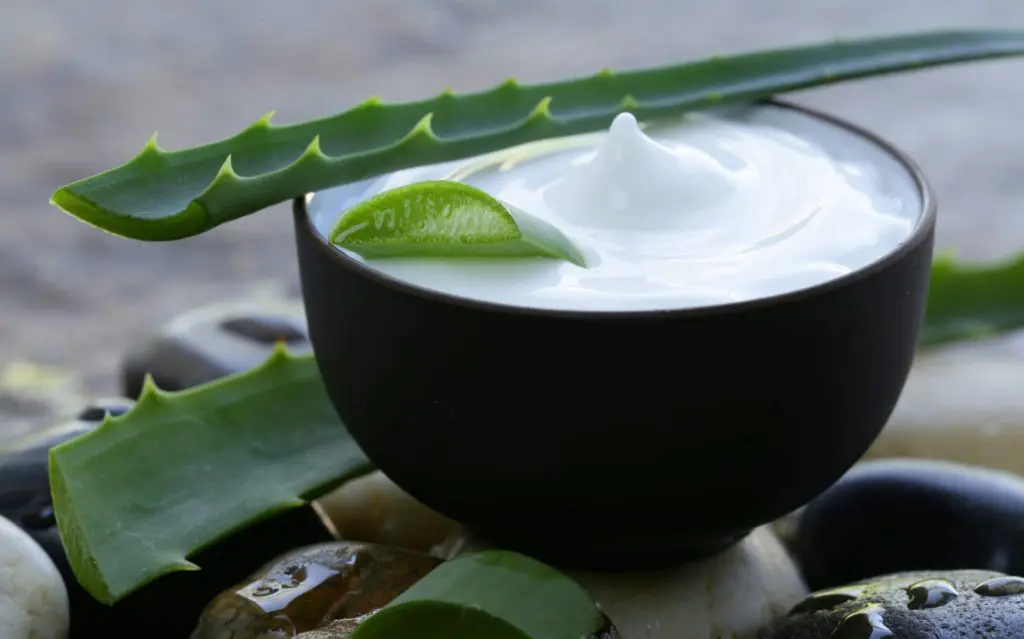Raspberry seed oil is a luxurious, sweet and attractive sounding oil, which connotes images of luscious fresh raspberries on a summer day. The botanical or INCI name is Rubus idaeus, and the oil offers moisturizing, occlusive, anti-inflammatory and antioxidant benefits for skin. Furthermore, raspberry seed oil offers anti-aging benefits of improving skin elasticity, suppleness and flexibility, while softening and smoothing the look of wrinkles, fine lines and sagging skin.
Often used in cosmetic products for its hydrating, antioxidant and lipid-barrier-forming characteristics, raspberry seed oil makes a lovely addition to facial formulations such as serums, face oils, lotions and creams for dry, dehydrated, sensitive and mature or aging skin types. Raspberry seed oil also serves as a luxurious addition to lip balms and lip products, as it forms an occlusive barrier to prevent moisture loss and protect skin from damaging elements.
6 reasons to use raspberry seed oil:
- Absorbs UV rays (Oomah et al., 2000) although its efficacy as a sunscreen has not yet been confirmed.
- Anti-inflammatory due to high content of alpha linolenic acid (the highest in any fruit seed oil) and phytosterols, therefore helpful for eczema and psoriasis.
- Very high in Vitamin E – an antioxidant. Antioxidants in skin care are important to prevent oxidative damage, which can lead to premature skin aging and skin cancer.
- Very high levels of phytosterols that can help reduce trans-epidermal water loss, thereby helping to keep skin moisturized.
- Phytosterols also help to repair skin damaged by environmental factors including sun damage.
- It’s a great source of alpha linolenic acid – an essential fatty acid that has regenerative and anti-aging skin benefits.

Composition and nutrition
Raspberry seed oil is rich in EFAs (essential fatty acids), primarily linoleic and linolenic acids. It contains very high levels of tocopherols (Vitamin E), which act as antioxidants, and carotenoids (Vitamin A).
Because of its composition, raspberry seed oil possesses superior anti-inflammatory qualities which makes it a nice addition to face, lip and sunscreen products.
Uses and benefits
Red raspberry seed oil is often used in cosmetic preparations as an addition to face creams, lotions, balms, serums and oils. Well known for its potent anti-inflammatory benefits, some have found relief from skin issues such as eczema with continued, topical use of the oil, due to its potent essential fatty acid complex which is rich in omegas.
Raspberry seed oil makes a nice addition to sunscreen products, due to its reported sun protection qualities*, along with its anti-inflammatory, antioxidant and hydrating benefits. It is also a popular addition to anti-aging products.
*According to the Oomah study (2000), raspberry seed oil has the ability to absorb UV light similar to a sunscreen with SPF 28-40. Some people misinterpret this as raspberry seed oil being an effective sunscreen, but in reality this claim has not been tested – the oils never went through strict SPF testing that determines the level of protection from sunlight. That being said, it is very likely that the oil will make a good addition to a natural sunscreen with proper UV filters due to its antioxidant and anti-inflammatory properties.
Sourced and processed
Raspberry seed oil is cold-pressed and obtained from the seeds, and it may come in refined or unrefined forms. The oil can often be sourced locally, depending on your local climate and whether raspberries are locally grown.
After processing, the oil’s color is anywhere from clear to a strong yellow with green tint, and the natural scent is often described as earthy, fresh, light and almost cucumber-like. Some may find the natural scent of raspberry seed oil unattractive, so you may choose to use it in dilution rather than as a base ingredient.
How to work with raspberry seed oil
Raspberry seed oil is absorbed into skin at a medium-average rate, and is a light, dry, thin and long oil which may leave a slightly oily, silky feel to the skin. Because of this slight oily residue, it is best to use as a dilution in your formula, rather than as a base ingredient.
Raspberry seed oil can sometimes be interchanged with pomegranate oil in formulations, as they are both moisturizing, occlusive, antioxidant agents, offering potent anti-inflammatory and anti-aging qualities. Both oils have similar absorption rates, being light, medium-absorption oils, and work well for dry, dehydrated, sensitive and mature/aging skin types.
The shelf life of raspberry seed oil is approximately two years, and the addition of Vitamin E (as an antioxidant), along with proper storage in a cool, dry environment away from sunlight, may result in prolonged life. Suppliers recommend refrigerating the oil after opening.
References:
Oomah, D. et al., 2000. Characteristics of raspberry (Rubus idaeus L.) seed oil. Sourced from: http://mail.lotioncrafter.com/reference/oomah.pdf
www.cosmeticsdesign.com/Formulation-Science/Fruit-oil-trend-down-to-berry-good-SPF-and-moisturising-properties
www.medicinenet.com/script/main/art.asp?articlekey=99544
Quick guide to formulating with Vitamin C
Ready to start supercharging your skincare formulations with high-performance ingredients?
Sign up to our weekly newsletter and receive your free guide and Vitamin C antioxidant serum formula today. – an exclusive gift from us!

In our quick guide to formulating with Vitamin C you’ll learn:
- What is Vitamin C?
- What are the benefits of Vitamin C?
- What type of cosmetic is it suitable for
- Stable forms of Vitamin C and how to use them.
Plus we’ll share with you a Vitamin C antioxidant serum formula you can make yourself!
You’ll also discover the amazing benefits Vitamin C offers for the skin.




